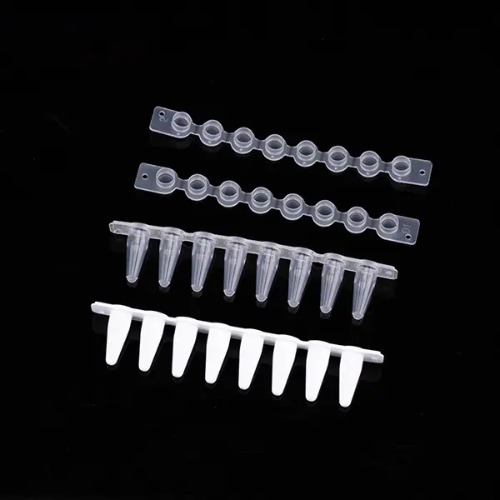In the ever-evolving landscape of medical diagnostics, PCR tubes have become indispensable tools for healthcare professionals and researchers alike. As we approach 2025, the demand for high-quality PCR tubes continues to surge, with PCR tubes manufacturers at the forefront of innovation. These small yet crucial components play a vital role in the polymerase chain reaction (PCR) process, enabling the amplification of DNA samples for a wide range of diagnostic applications. From infectious disease detection to genetic testing, PCR tubes are the unsung heroes of modern laboratory analysis, providing the foundation for accurate and reliable results.
Table of contents:
The Critical Role of PCR Tubes in Infectious Disease Detection
How PCR Tube Quality Influences Diagnostic Accuracy and Reliability
Innovations in PCR Tube Design for Point-of-Care Diagnostics
Wholesale PCR Tubes: Meeting the Global Demand for Diagnostic Testing
PCR tubes have revolutionized the field of infectious disease diagnostics, offering a rapid and sensitive method for detecting pathogens. In the wake of global health challenges, PCR tubes suppliers have stepped up to meet the increased demand for these essential components. The tubes' design, typically made from medical-grade polypropylene, ensures optimal performance during the PCR process. With features like ultra-thin walls for efficient heat transfer and special sealing to prevent contamination, these tubes are engineered to deliver precise results. PCR tubes manufacturers have focused on creating products that can withstand the rigorous temperature cycles of PCR, typically ranging from -20°C to 100°C, ensuring the integrity of the genetic material throughout the amplification process.

The quality of PCR tubes directly impacts the accuracy and reliability of diagnostic tests. Leading PCR tubes suppliers understand that even minor variations in tube construction can affect test outcomes. High-quality tubes, such as those produced by reputable PCR tubes manufacturers, are designed to be DNase-free, RNase-free, and endotoxin-free, eliminating potential sources of contamination that could compromise results. The flat lid design, common in many PCR tubes, is particularly suited for real-time PCR applications, allowing for improved optical clarity during fluorescence detection. Furthermore, the ability of these tubes to withstand high centrifugal forces, often up to 6000g RCF, ensures that samples remain intact during processing, contributing to the overall reliability of diagnostic procedures.

As the field of diagnostics moves towards more decentralized, point-of-care testing, PCR tubes manufacturers are innovating to meet new challenges. The development of PCR tubes compatible with portable PCR devices is opening up possibilities for rapid, on-site testing in various settings, from remote clinics to field hospitals. Some PCR tubes suppliers are now offering tubes in both 0.1ml and 0.2ml volumes, as well as in single tube and 8-strip formats, providing flexibility for different testing needs. The trend towards miniaturization has led to the creation of PCR tubes with even thinner walls and smaller volumes, enabling faster temperature changes and reduced reagent consumption. These innovations are crucial in making PCR-based diagnostics more accessible and efficient in resource-limited environments.
The global nature of modern healthcare challenges has underscored the importance of a robust supply chain for diagnostic materials. Wholesale PCR tubes suppliers play a critical role in ensuring that laboratories and healthcare facilities worldwide have access to the necessary tools for PCR-based testing. Many PCR tubes manufacturers now offer bulk packaging options, such as 125 tubes per rack and 10 racks per carton, to meet the high-volume demands of large-scale testing operations. The ability to source high-quality PCR tubes in large quantities is essential for maintaining testing capacity during public health emergencies and for supporting ongoing research and clinical diagnostics. As PCR tubes suppliers continue to expand their production capabilities, they contribute to the global effort to enhance diagnostic capabilities and improve patient outcomes.
In conclusion, PCR tubes remain a cornerstone of modern diagnostic testing, with their importance only set to grow as we approach 2025. The continuous advancements made by PCR tubes manufacturers in materials, design, and production processes are enabling more accurate, efficient, and accessible diagnostic solutions. From improving infectious disease detection to supporting cutting-edge genetic research, these small but mighty tubes are instrumental in shaping the future of healthcare. As global health challenges persist, the collaboration between researchers, healthcare providers, and PCR tubes suppliers will be crucial in driving innovation and ensuring the availability of high-quality diagnostic tools. The ongoing evolution of PCR tube technology promises to unlock new possibilities in medical diagnostics, ultimately leading to better patient care and public health outcomes worldwide.